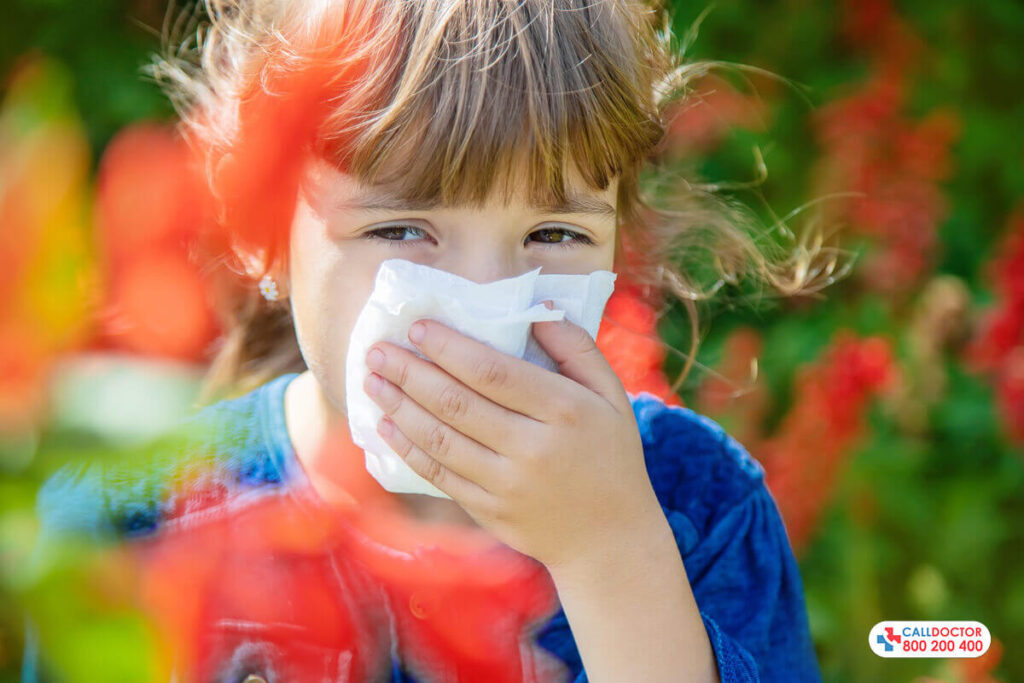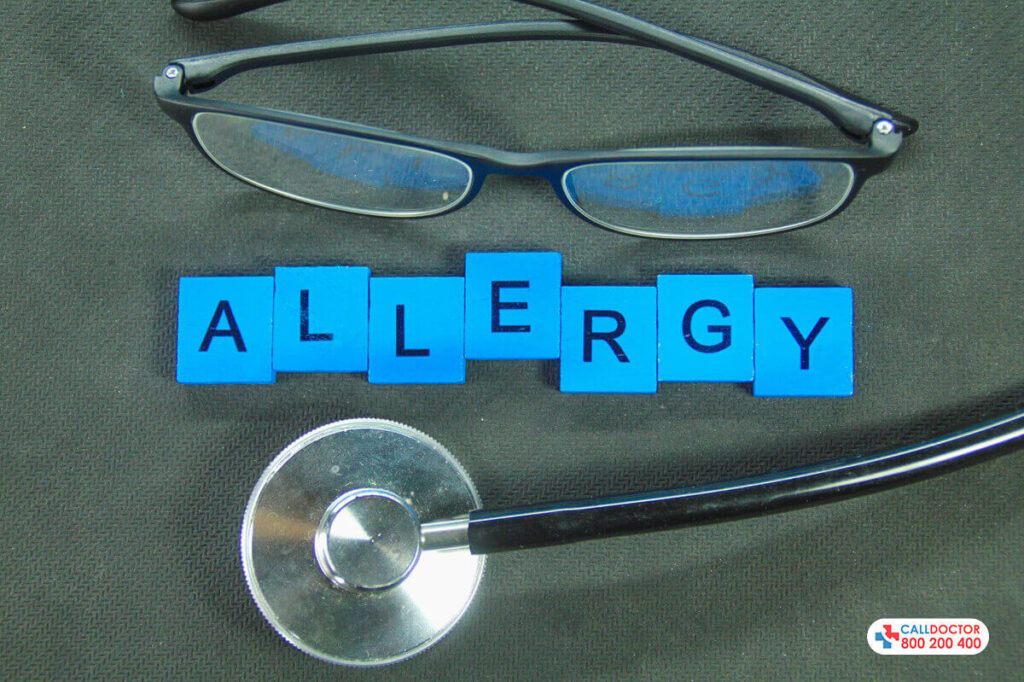Imagine this: a five-year-old playing joyfully in the backyard suddenly stops mid-run, clutching their chest, and gasping for air. The parents assume it’s just fatigue or a minor cold. However, this could be an early sign of asthma, a condition often misdiagnosed or overlooked in children. Recognizing the signs of asthma early can make a world of difference in ensuring children get the care they need.
Asthma symptoms can vary and are often mistaken for common respiratory issues. Let’s dive into subtle and significant indicators of asthma, empowering parents, caregivers, and babysitters to act promptly.
Persistent Coughing
A persistent, dry cough that worsens at night or during physical activity can be an early symptom of asthma. Unlike a typical cough from a cold, this type of cough doesn’t improve with over-the-counter remedies and may appear in cycles.
A lingering cough is a sign of airway irritation and inflammation, which could signal asthma even in the absence of wheezing. Ignoring this symptom might delay diagnosis and treatment.
Wheezing Sounds
Wheezing is characterized by a high-pitched, whistling sound during exhalation. It’s one of the most recognizable asthma symptoms, caused by narrowed or obstructed airways.
Wheezing indicates that airflow to the lungs is restricted, which is a critical asthma marker. This symptom often accompanies shortness of breath or chest tightness.
Frequent Respiratory Infections
Children with asthma are more prone to respiratory infections like colds and the flu, which can exacerbate breathing difficulties. Recovery from such illnesses often takes longer than usual.
Recurrent respiratory infections might hint at underlying asthma. If colds consistently lead to lingering coughs or breathing issues, it’s worth consulting a healthcare professional.

Shortness of Breath During Play
Active play is essential for children’s growth, but if a child frequently pauses to catch their breath or complains about difficulty breathing, this could indicate exercise-induced asthma.
Physical activity can act as a trigger for asthma symptoms. Recognizing this pattern helps caregivers manage activities and seek medical intervention when necessary.
Chest Tightness
Children might describe this sensation as “a heavy feeling” or “pressure” in their chest. Chest tightness is a less obvious but significant symptom of asthma, signaling airway inflammation or spasms.
Chest discomfort may go unnoticed if a child cannot articulate their feelings well. Adults should watch for non-verbal signs, such as wincing or clutching the chest.
Nighttime Symptoms
Nighttime coughing, wheezing, or difficulty breathing can disrupt a child’s sleep. These symptoms often worsen due to lying down, which affects airflow.
Asthma frequently manifests during the night, affecting sleep quality and overall health. Consistent nighttime symptoms should prompt a visit to a pediatrician.
Seasonal Triggers
Children whose asthma symptoms worsen during specific seasons may have allergy-induced asthma. Common triggers include pollen in spring, mold in damp weather, and dust mites in winter.
Seasonal allergies can exacerbate asthma. Identifying these triggers helps in implementing preventive measures, such as using air purifiers or limiting outdoor exposure during high-pollen seasons.
Difficulty Recovering After Illness
While most children recover quickly from colds or flu, those with asthma might experience prolonged symptoms, such as persistent coughing or fatigue.
Extended recovery times may indicate chronic airway inflammation. Early diagnosis can help manage symptoms and improve recovery.
Family History of Asthma or Allergies
A family history of respiratory issues or allergies increases the likelihood of asthma in children. Parents or caregivers with asthma should pay closer attention to potential symptoms in their children.
Genetics plays a significant role in asthma development. Awareness of family history allows for earlier interventions and proactive monitoring.
Unexplained Fatigue
Children with asthma may appear tired or less active due to reduced oxygen intake. They may also avoid physical activities they previously enjoyed, leading to concerns about their energy levels.
Fatigue can be an overlooked symptom of asthma, but it’s a clear signal that the body is struggling to breathe efficiently.

Tip for Babysitters and Caregivers
If you observe any of these signs, inform the child’s parents immediately. Avoid exposing the child to potential asthma triggers, such as smoke, pet dander, or strong fragrances.
Asthma and Home Healthcare Services
Home healthcare services play a pivotal role in managing asthma effectively. By offering access to babysitters or specialists and asthma care at home, these services ensure convenience and comfort for both children and their families.
From providing nebulizer treatments to monitoring symptoms, home healthcare services empower parents with expert guidance in their familiar environment.
FAQs About Recognizing Asthma in Children
- Can asthma develop in children with no family history of the condition?
Yes, asthma can develop even without a family history. Environmental factors, allergens, and respiratory infections can trigger asthma in children.
- How is asthma diagnosed in young children?
Pediatricians diagnose asthma by reviewing symptoms, family history, and conducting tests such as lung function tests or observing responses to bronchodilators.
- What are common asthma triggers in children?
Common triggers include pollen, dust mites, mold, pet dander, smoke, cold air, and respiratory infections. Identifying and avoiding these triggers can help manage symptoms.
- Can children outgrow asthma?
Some children experience fewer symptoms as they grow older due to lung development. However, asthma can persist into adulthood for others.
- How can caregivers manage asthma during playtime?
Ensure the child has their prescribed inhaler on hand. Encourage warm-up exercises and avoid outdoor play during high-pollen seasons or cold weather.
- What should I do if a child has an asthma attack?
Help the child use their inhaler immediately. If symptoms persist or worsen, seek emergency medical attention. Stay calm to avoid further distressing the child.
- Are natural remedies effective for asthma?
Natural remedies, like honey or steam inhalation, may provide temporary relief but are not substitutes for prescribed asthma medications. Always consult a doctor.
- How can home healthcare services assist with asthma management?
Home healthcare services provide personalized care plans, medication management, and respiratory therapy, ensuring that children receive consistent and professional asthma care at home.
How Call Doctor Helps with Asthma Management
At Call Doctor, we specialize in home healthcare and babysitting services for children’s respiratory needs. Our dedicated team of healthcare professionals ensures that asthma is managed effectively and conveniently.
Here’s how we help:
- Comprehensive asthma care plans designed for children.
- At-home consultations with pediatric specialists.
- Nebulizer and inhaler assistance in the comfort of your home.
- Expert advice on avoiding triggers and managing symptoms.
Take the First Step Today!
Protect your child’s respiratory health with Call Doctor’s expert home healthcare services. Schedule an appointment today and let us bring professional care to your doorstep.
“Healthy kids, happy homes.



